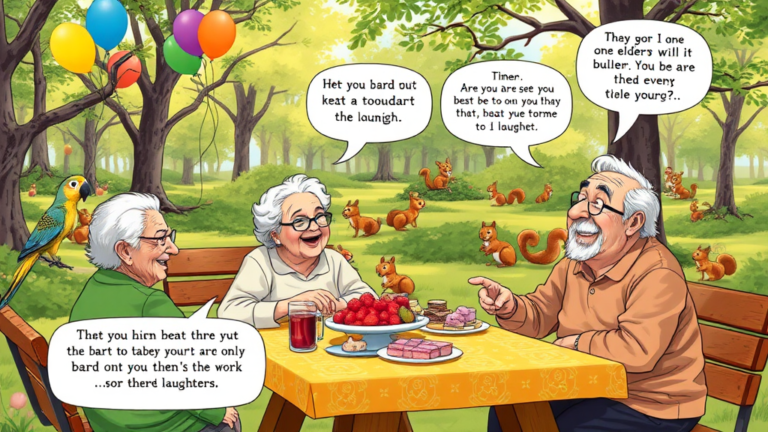Logic Puzzles for Math Enthusiasts: Can You Find the Solution?
Logic Puzzles for Math Enthusiasts: Can You Find the Solution?
Logic puzzles are compelling tools for engaging the mind and sharpening problem-solving skills.
They challenge our reasoning abilities while providing entertaining mental exercise.
If you’re a math enthusiast looking to enhance your logical thinking, you’re in the right place.
This article dives into a selection of intriguing logic puzzles designed specifically for you.
We’ll explore these challenges, unravel their solutions, and provide insights to elevate your puzzle-solving skills.
Ready to tackle the challenge? Let’s get started!
The Importance of Logic Puzzles in Learning
Logic puzzles are more than just a fun pastime. They serve as excellent educational tools, especially in math-heavy disciplines.
Research suggests solving these puzzles enhances critical thinking, problem-solving, and deductive reasoning skills among learners.
According to a study published in the Journal of Educational Psychology, students who regularly practice with logic puzzles perform significantly better in math and science.
Here are some reasons why logic puzzles are essential for math enthusiasts:
- Boosts Cognitive Skills: Engaging with puzzles activates various brain regions, enhancing mental agility.
- Encourages Strategic Thinking: Each puzzle requires a strategy for solving, promoting forward-thinking.
- Enhances Problem-Solving Skills: Logic puzzles often present complex problems that require multi-step solutions.
- Fun and Engaging: Puzzles offer enjoyment, making learning less of a chore and more of an adventure.
Understanding the Structure of Logic Puzzles
Before diving into the puzzles, it’s essential to understand their structure.
Logic puzzles typically include a set of premises or clues that lead to a conclusion.
The key is to analyze the information given, discern patterns, and apply logical reasoning to arrive at the solution.
Here’s a brief look at common elements found in logic puzzles:
- Premises: These are statements or clues that provide the foundation of the puzzle.
- Constraints: Conditions that limit how solutions can be derived.
- Goal: The intended conclusion or solution that the solver must reach.
10 Challenging Logic Puzzles for Math Enthusiasts
Now that we’ve established the significance of logic puzzles, let’s jump into the challenges.
Here are ten exciting puzzles that will test your reasoning and math skills:
1. The River Crossing Puzzle
You have a wolf, a goat, and a cabbage. You need to cross a river with all three, but your boat can only fit one item at a time.
If you leave the wolf alone with the goat, the wolf will eat the goat.
If you leave the goat alone with the cabbage, the goat will eat the cabbage.
How do you get all three across the river safely?
2. The Five Houses Puzzle
There are five houses painted five different colors in a row. Each house is inhabited by a person of a different nationality who has a different pet, drinks a different beverage, and smokes a different brand of cigarettes.
Your clues are:
- The Brit lives in the red house.
- The Swede has a dog.
- The Dane drinks tea.
- The green house is on the left of the white house.
- The green house’s owner drinks coffee.
- The person who smokes Pall Mall rears birds.
- The owner of the yellow house smokes Dunhill.
- The man living in the center house drinks milk.
- The Norweigan lives in the first house.
- The man who smokes Blends lives next to the one who has cats.
- The man who has horses lives next to the man who smokes Dunhill.
- The owner who smokes Blue Master drinks beer.
- The German smokes Prince.
- The Norweigan lives next to the blue house.
The question: Who owns the fish?
3. The Island of Truth and Lies
You land on an island where some inhabitants always tell the truth, and others always lie. You meet two inhabitants, A and B.
You ask A, “Is B a liar?” A replies, “Yes.” What can you conclude about A and B?
4. The Three Switches Problem
You are in a room with three switches that control three light bulbs in another room that you cannot see. You can only enter the room with the bulbs once. How can you determine which switch controls which bulb?
5. The Monty Hall Problem
Imagine you’re on a game show with three doors: behind one door is a car, and behind the other two are goats. You pick a door, but before it is opened, the host, who knows what’s behind each door, opens another door, revealing a goat. You are then given the option to switch your choice or stick with your original door. What should you do to maximize your chances of winning the car?
6. The Prisoner Hat Riddle
Three prisoners are lined up one behind the other such that the last can see the two in front of him, the middle one can see the one in front, and the first cannot see anyone. Each prisoner wears a red or blue hat. The guard tells them that at least one has a red hat. The last prisoner doesn’t know the color of his hat. The middle prisoner also doesn’t know. However, the first prisoner confidently states his hat color. What color is his hat, and how did he know?
7. The Calendar Puzzle
If today is Wednesday, what day will it be 75 days from now?
8. The Missing Dollar Riddle
Three friends check into a hotel room that costs $30. They each contribute $10. Later, the manager realizes the room was only $25 and gives the bellboy $5 to return to the friends. The bellboy, unable to split the $5 evenly, gives each friend $1 back and keeps $2 for himself. Each friend now has paid $9, totaling $27, plus the $2 the bellboy kept. Where is the missing dollar?
9. The Two Doors Puzzle
You come to two doors: one leads to freedom and the other to doom. Each door is guarded by a creature. One always tells the truth, and the other always lies, but you don’t know which is which.
You can only ask one question to one of the guards. What can you ask to find the door to freedom?
10. The Coin Weighing Puzzle
You have 12 coins, and one is either heavier or lighter than the others, which are of equal weight. Using a balance scale, how many weighings are required to find the anomalous coin?
Tips for Enhancing Your Puzzle-Solving Skills
Solving logic puzzles can be exceptionally rewarding, but enhancing your skills requires practice and strategy. Here are some tips for math enthusiasts eager to improve their puzzle-solving capabilities:
- Break it Down: Analyze the puzzle step-by-step, breaking it into manageable parts.
- Look for Patterns: Identify patterns or relationships between clues to guide your reasoning.
- Practice Regularly: Regular practice with different types of puzzles will enhance your skills.
- Utilize Visual Aids: Drawing diagrams or tables can help visualize the problem.
- Stay Patient: Some puzzles may take time; don’t rush, and think critically.
Personal Insights on the World of Logic Puzzles
Having engaged with numerous logic puzzles throughout my academic and professional career, I can attest to their impact on cognitive development.
I once encountered a particularly challenging riddle that took me days to solve. The thrill of the eventual solution was immensely satisfying!
These puzzles foster a sense of community as well. They can be shared in group settings or communities where individuals collaborate to reach solutions.
This camaraderie boosts both motivation and engagement, making the process even more enjoyable.
Conclusion
Engaging with logic puzzles offers not just entertainment but a significant enhancement in cognitive skills that apply across various aspects of life.
Whether you are solving for personal growth, educational purposes, or just for fun, the benefits are undeniable.
Through the ten puzzles presented, we hope you find the thrill of chasing solutions and sharpening your mathematical logic skills.
So grab your friends or work through them solo. Happy puzzling!
Frequently Asked Questions (FAQ)
What are logic puzzles?
Logic puzzles are brain teasers that challenge your reasoning ability through structured problems which require critical thinking.
How can I improve my puzzle-solving skills?
Regular practice and breaking puzzles into smaller, manageable parts while keeping a patient attitude can significantly enhance your skills.
Where can I find more logic puzzles?
Many websites offer collections of logic puzzles, and books dedicated to brain teasers are also excellent resources.
Can solving puzzles help with academic performance?
Research indicates that engaging with logic puzzles can improve performance in mathematics and scientific disciplines.
What age group can benefit from logic puzzles?
Logic puzzles are suitable for all age groups, from children to adults, and can be adapted to various skill levels.
Feel free to share your thoughts, experiences, or questions regarding logic puzzles in the comments section below!







